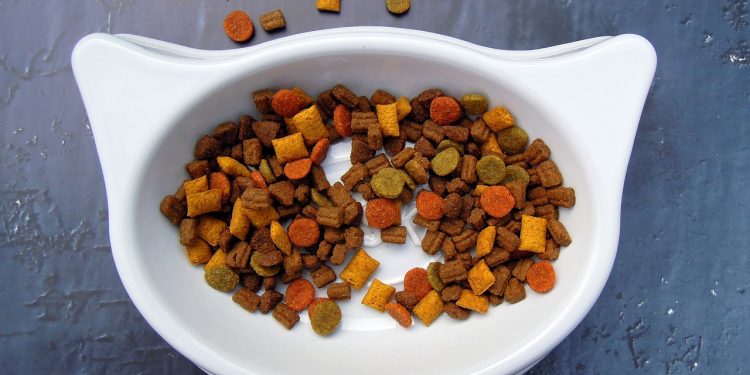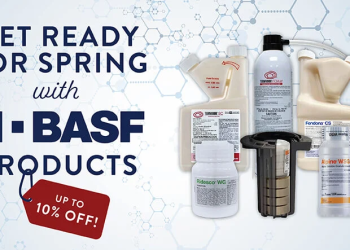Providing the right nutrition is one of the most essential responsibilities of a pet owner. What your pet eats significantly impacts their overall health, energy levels, skin and coat condition, and even their lifespan. With an overwhelming number of pet food options on the market, it can be challenging to determine which foods are the best for your furry friend. This guide aims to simplify that process by discussing the best types of foods for your pet’s wellness and what to look for when selecting a diet that will keep your pet healthy and thriving.
Understanding Pet Nutrition Basics
Pets, like people, require a well-balanced diet that includes proteins, carbohydrates, fats, vitamins, and minerals. However, their nutritional needs differ depending on their species, age, size, and health condition. Dogs, as omnivores, benefit from a mix of animal and plant-based foods, whereas cats are obligate carnivores and need a diet primarily composed of meat.
When selecting pet food, it’s important to look for products that are labeled as “complete and balanced.” This indicates that the food meets the nutritional standards set by organizations like the Association of American Feed Control Officials (AAFCO) and provides the essential nutrients your pet needs. Below, we explore the best types of foods that contribute to your pet’s overall wellness.
1. High-Quality Commercial Pet Foods
High-quality commercial pet foods are an excellent choice for ensuring your pet gets the nutrients they need. Look for well-regarded brands that use quality ingredients, avoid unnecessary fillers, and are formulated with the guidance of veterinary nutritionists. High-quality foods list real meat as the first ingredient, and you should be able to recognize most of the items on the ingredient list.
Avoid pet foods that contain excessive amounts of by-products, artificial preservatives, or low-quality fillers like corn, wheat, or soy. These can be harder for your pet to digest and may contribute to allergies or digestive issues. Instead, choose foods that are rich in protein, have healthy fats such as omega-3 and omega-6, and are supplemented with vitamins and minerals for complete nutrition.
2. Fresh and Homemade Diets
Some pet owners prefer to prepare fresh or homemade meals for their pets, believing it to be a healthier and more natural approach. Fresh diets can be very nutritious if they are well-balanced and carefully planned. Fresh food diets, including those made with real, whole ingredients such as lean meats, vegetables, and grains, can provide pets with the nutrients they need without additives or preservatives.
However, it is crucial to consult with a veterinarian or a pet nutritionist before switching to a homemade diet. Pets have specific nutritional requirements, and improperly balanced homemade diets can lead to deficiencies or excesses in certain nutrients. With the right knowledge and planning, fresh and homemade diets can be a fantastic way to enhance your pet’s wellness.
3. Raw Diets: Benefits and Risks
Raw diets have gained popularity among pet owners, particularly for dogs. These diets typically include raw meat, bones, vegetables, and organs. Proponents of raw feeding argue that it aligns more closely with the natural diets of dogs’ ancestors, providing benefits such as shinier coats, healthier skin, and cleaner teeth.
While raw diets can offer some benefits, they also come with risks. Raw meat can contain harmful bacteria such as Salmonella or E. coli, which can be dangerous not only to pets but also to the humans who handle the food. It’s important to weigh the potential benefits and risks and consult your veterinarian before deciding to feed your pet a raw diet. If done correctly and safely, raw diets may be a suitable option for some pets, but they require careful planning and handling.
4. Grain-Free and Limited Ingredient Diets
Grain-free diets have become increasingly popular, largely due to concerns over food allergies and sensitivities. While true grain allergies are relatively uncommon in pets, some animals do benefit from grain-free options, particularly those with digestive issues or specific allergies. Grain-free diets typically replace grains with alternative carbohydrates such as sweet potatoes or peas.
Limited ingredient diets (LID) are designed for pets with food allergies or sensitivities and contain fewer ingredients to help pinpoint what may be causing allergic reactions. These diets focus on a single protein source and limited carbohydrate sources to minimize the risk of triggering allergies. LIDs can be beneficial for pets with persistent itching, gastrointestinal issues, or other symptoms of food allergies.
5. Age-Appropriate Foods
Your pet’s nutritional needs change throughout their life, and feeding age-appropriate food is key to maintaining their wellness. Puppies and kittens require more calories and nutrients like calcium and protein to support their rapid growth. Look for foods specially formulated for young pets to provide them with everything they need for healthy development.
Adult pets require balanced nutrition that maintains their energy levels and supports a healthy weight. Senior pets, on the other hand, may benefit from diets that are lower in calories but rich in fiber and omega-3 fatty acids, which help manage weight, joint health, and inflammation. Always choose food formulated for your pet’s specific life stage to ensure they are getting the right nutrients at each stage of their life.
6. Foods Rich in Omega-3 Fatty Acids
Omega-3 fatty acids are essential for maintaining a pet’s overall wellness. They help reduce inflammation, promote heart health, and improve skin and coat condition. Foods rich in omega-3s, such as fish-based diets or those supplemented with fish oil, flaxseed, or chia seeds, can provide significant health benefits for your pet.
If your pet is on a commercial diet that lacks omega-3, you can add a high-quality fish oil supplement to their food. Always consult your vet before adding supplements to ensure the correct dosage and to avoid any potential side effects.
7. Probiotics and Gut Health
A healthy gut is essential for a pet’s overall well-being. Probiotics are beneficial bacteria that support digestive health and help maintain a balanced gut microbiome. Foods that contain probiotics can help pets with sensitive stomachs, improve digestion, and even boost their immune system.
Some high-quality commercial pet foods include probiotics, or you can add them to your pet’s diet through supplements. Plain yogurt is another simple and natural source of probiotics that can be added to your dog’s diet in small amounts. However, make sure the yogurt contains live cultures and does not have added sugars or artificial sweeteners.
8. The Importance of Hydration
While food is crucial, hydration is equally important for maintaining your pet’s health. Wet or canned foods can provide additional moisture to your pet’s diet, which is particularly beneficial for cats who tend to drink less water compared to dogs. Cats are prone to urinary and kidney issues, and ensuring they stay well-hydrated can help prevent these problems.
If your pet is on a dry food diet, ensure they have constant access to fresh, clean water. You can also add a little water or low-sodium broth to their kibble to increase their water intake. Water fountains are often appealing to cats and can encourage them to drink more.
9. Avoid Harmful Foods and Ingredients
Certain foods and ingredients can be harmful or toxic to pets. Always avoid feeding your pet chocolate, grapes, raisins, onions, garlic, and foods containing xylitol, as these can be toxic and even life-threatening. Additionally, fatty or greasy foods can lead to pancreatitis, especially in dogs, so avoid giving them table scraps or leftovers from fatty meals.
Stick to pet-safe treats and be mindful of any ingredients that could cause allergic reactions. By knowing which foods to avoid, you can keep your pet safe and healthy.
10. Consult Your Veterinarian for a Personalized Diet Plan
Every pet is unique, and their nutritional needs can vary based on factors such as age, breed, activity level, and health conditions. Consulting your veterinarian is the best way to determine the most appropriate diet for your pet. They can help you navigate the numerous options available, identify any dietary needs or restrictions, and recommend specific brands or types of food that will provide the best nutrition for your furry friend.
Your vet can also help you adjust your pet’s diet as they age or if they develop any health issues that require dietary changes. Regularly discussing your pet’s diet during routine check-ups will help ensure that they continue to receive optimal nutrition throughout their life.
The Right Diet for a Healthy, Happy Pet
Feeding your pet the best foods for their wellness is key to ensuring they live a long, healthy, and happy life. Whether you choose high-quality commercial pet food, prepare homemade meals, or consider specialized diets, the most important thing is to ensure that your pet is receiving complete and balanced nutrition. With proper knowledge and care, you can give your furry friend the best chance at a life filled with vitality and well-being.














Discussion about this post